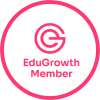How to Future-Proof Your Career in a Rapidly Changing World
In today’s fast-evolving, tech-driven landscape, the job market is transforming at an unprecedented pace. Automation, artificial intelligence, and shifting global demands are reshaping industries, making it essential to future-proof your career. The World Economic Forum’s 2023 Future of Jobs Report predicts that 44% of core skills will face disruption by 2027. To thrive in this dynamic environment, professionals must adopt proactive strategies to stay relevant and capitalise on new opportunities. This article outlines practical steps to secure your career for the future, with mentorship as one of several tools to support your journey.
Why Future-Proofing Your Career Is Crucial
Change is relentless. Traditional roles, such as those in administration, are declining, while demand for expertise in AI, data analytics, and sustainability is surging. Future-proofing your career isn’t just about job security—it’s about positioning yourself to lead in a world where adaptability and innovation are paramount. By anticipating trends and building a versatile skill set, you can navigate disruptions with confidence.
Practical Strategies to Future-Proof Your Career
1. Commit to Lifelong Learning
The shelf life of skills is shrinking, with some technical competencies becoming obsolete in just 2–5 years. Continuous learning is non-negotiable for staying competitive.
-
Online Courses: Platforms like Coursera, Udemy, and edX offer affordable training in high-demand fields like machine learning, cybersecurity, and cloud computing.
-
Certifications: Credentials such as Microsoft’s Azure AI Engineer or Google’s Professional Data Engineer signal expertise to employers.
-
Stay Informed: Follow industry podcasts, read whitepapers, and subscribe to newsletters from sources like Gartner or McKinsey.
Lifelong learning ensures your skills remain relevant and showcases your commitment to growth. Dedicate time each week to exploring new tools or concepts in your field.
2. Master In-Demand Soft Skills
Technical expertise alone isn’t enough. LinkedIn’s 2024 Workplace Learning Report reveals that 92% of employers value soft skills like adaptability, critical thinking, and collaboration when hiring.
-
Adaptability: Embrace change by staying open to new tools, processes, or roles.
-
Critical Thinking: Develop the ability to analyse complex problems and propose innovative solutions.
-
Communication: Excel in virtual and in-person settings to build strong professional relationships.
Soft skills enhance your versatility, making you valuable across industries. Practise these skills through team projects, public speaking, or leadership roles in professional groups.
3. Build a Strong Personal Brand
A compelling personal brand highlights your expertise and sets you apart in a competitive market. It’s a powerful tool for attracting opportunities, even in turbulent times.
-
Optimise LinkedIn: Share insights, comment on industry posts, and publish articles to establish thought leadership.
-
Create a Portfolio: Use platforms like GitHub for developers or Dribbble for designers to showcase your work.
-
Network Actively: Attend virtual webinars, industry conferences, or local meetups to connect with peers and leaders.
A well-crafted personal brand builds credibility and visibility, ensuring you’re top of mind when opportunities arise. Regularly update your profiles to reflect your evolving skills.
4. Stay Ahead of Industry Trends
Anticipating change allows you to pivot before disruption hits. Proactively tracking trends ensures you’re prepared for emerging roles and technologies.
-
Monitor Innovations: Follow platforms like X for real-time updates from thought leaders. AI, blockchain, and sustainability are reshaping industries like finance, healthcare, and energy.
-
Explore Market Shifts: Demand for ESG (Environmental, Social, Governance) expertise is growing across sectors.
-
Experiment with Side Hustles: Test new skills through freelance projects or passion pursuits to stay agile.
Use tools like Google Trends or industry reports to identify high-growth areas. Join professional associations or online communities to discuss trends with peers.
5. Cultivate Resilience and Agility
The ability to adapt to uncertainty is a hallmark of a future-proof career. Resilience ensures you can weather setbacks and seize unexpected opportunities.
-
Prioritise Mental Health: Practise mindfulness, exercise, or journaling to manage stress.
-
Seek Feedback: Regularly ask for input from colleagues to identify areas for growth.
-
Learn from Failure: Treat setbacks as opportunities to refine your approach.
Resilience enables you to pivot industries, roles, or locations as needed. Build a support network of peers and mentors to stay grounded during transitions.
Mentorship as a Support Tool
Mentorship is a valuable tool to enhance your future-proofing efforts. A mentor provides tailored guidance, helping you navigate career decisions and avoid common pitfalls. They can recommend courses, introduce you to key contacts, or offer feedback on your personal brand. To find a mentor, reach out to your network, explore mentors through You2Mentor or join mentorship programs through your employer or industry groups. While not the core of your strategy, mentorship accelerates progress by offering clarity and accountability.
Future-proofing your career in a rapidly changing world demands proactive effort and a growth mindset. By committing to lifelong learning, mastering soft skills, building a personal brand, staying ahead of trends, and cultivating resilience, you can thrive amid disruption. Tools like mentorship complement these efforts by providing guidance and connections to support your goals. Start today by assessing your skills, setting clear objectives, and taking one step—whether it’s enrolling in a course, updating your LinkedIn, or connecting with a mentor. The future may be uncertain, but with the right strategies, your career can be unstoppable.






